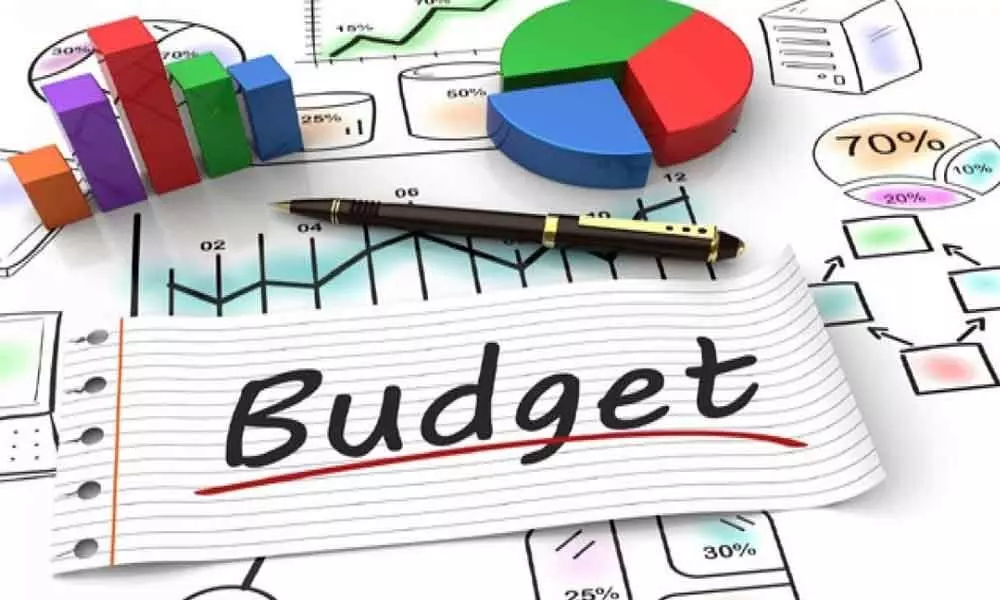If I would prepare Union Budget

One, reform Goods and Services Act (GST). I would provide that the GST paid by small businesses on the purchase of raw materials would be refunded to them in cash. This would make it possible for them to stand in competition with large industries.
One, reform Goods and Services Act (GST). I would provide that the GST paid by small businesses on the purchase of raw materials would be refunded to them in cash. This would make it possible for them to stand in competition with large industries.
I would also withdraw from the move to one single rate of GST. Instead, I would lower the rate for labour-intensive goods like garments and agarbattis; and raise them for capital-intensive goods like cars. I would specially increase the rates for job-eating goods like JCB, excavators, harvesters and robots.
That would make it profitable for businesses to employ more labour and less machines. That would generate employment, put purchasing power in the hands of the common man, generate demand in the market and rev up the economy. Within GST, I would allow the States to change the rates to their convenience.
The present GST system should be tweaked to allow different States to collect GST at different rates while maintaining the same classification of goods so that interstate trade continues seamlessly. This will help preserve the integrity of the country by following the true federal structure.
Two, exit WTO. The original incentive for us joining the WTO was that the markets of the developed countries will be opened for our exports — agriculture, in particular. The developed countries had committed that this matter will be resolved in the 10 years following the commencement of the WTO.
This commitment has been belied. We have suffered from cheap imports and from having to follow the international patents regime that favours large Multinational Corporations against small businesses who copycat the technologies.
Our pharmaceutical sector owes its global presence to the earlier patents regime that our companies to copy the drugs evolved by the MNCs. In any case, our future lies in exports of services that are outside the framework of the WTO.
Hence, we should quit the WTO, increase import duties on imports — especially of labour intensive items like garments and sports goods — and amend our Patents Act to allow our businesses to copycat the technologies developed by the MNCs. This save the monies being remitted by us towards royalties being paid to MNCs.
Three, privatisation of PSUs. I would privatise all Public Sector Banks and all other Public Sector Undertakings — whether running in profit or loss. Only selected PSUs in critical areas like Defense and Research should remain in the hands of the government.
In my reckoning, our government can generate a huge revenue of about Rs 2000 thousand crores — almost equal to the annual budget of the Central government. I would create a Special Purpose Vehicle to invest this huge amount in the creation of new technologies like space tourism, robotics, artificial intelligence, new generation of internet, patriot missiles, big data analysis, facilitating export of services, etc.
The last is very important. I would establish a PSU that will supply Indian teachers of English and Mathematics, for example, to the entire developing world. The generation of new technologies would lay the foundation of the prowess of India in the coming decades.
Four, I would freeze the salaries and dearness allowance of government employees. The government employees are appointed to serve the people of the country. It is beyond comprehension why the one who serves should be paid more salary than the average income of one who is served.
One who serves should get less salary than the one whom he or she serves. The salaries of government employees today are many times the average income of the people. Ideally, these should be reduced. However, that may not be politically feasible hence the least that can be done is to freeze them at the present levels.
I would remit the money saved directly to the bank accounts of the citizens of the country. I would also end the large number of welfare schemes that are allegedly made for the welfare of the people but actually mostly serve the government employees.
I would consolidate this amount and remit that to the bank accounts of our citizens. That will place huge incomes in the hands of the people and jumpstart the economy.
Five. Cleaning up the government. I would create a system whereby the officers of a department would themselves rank their colleagues. For example, the Sub-Divisional Officers of the electricity board of a district would be asked to rank their colleagues. Those getting the lowest 10 percent ranks would be compulsorily retired. This will help clean-up the inefficient and corrupt officers.
Six, I would take loans from the domestic money market or from the International Monetary Fund and invest in the creation of pro-common man infrastructure.
For example, would provide free Wi-Fi in small towns and make roads in the villages. This investment would not only create demand for cement, steel and labour, it would also act like Mobil oil for the grassroots economy.
(The writer is formerly Professor of Economics at IIM, Bengaluru)








